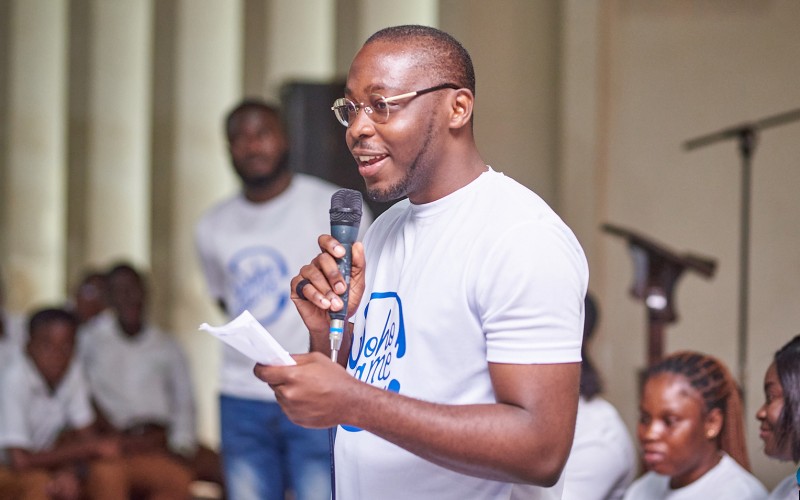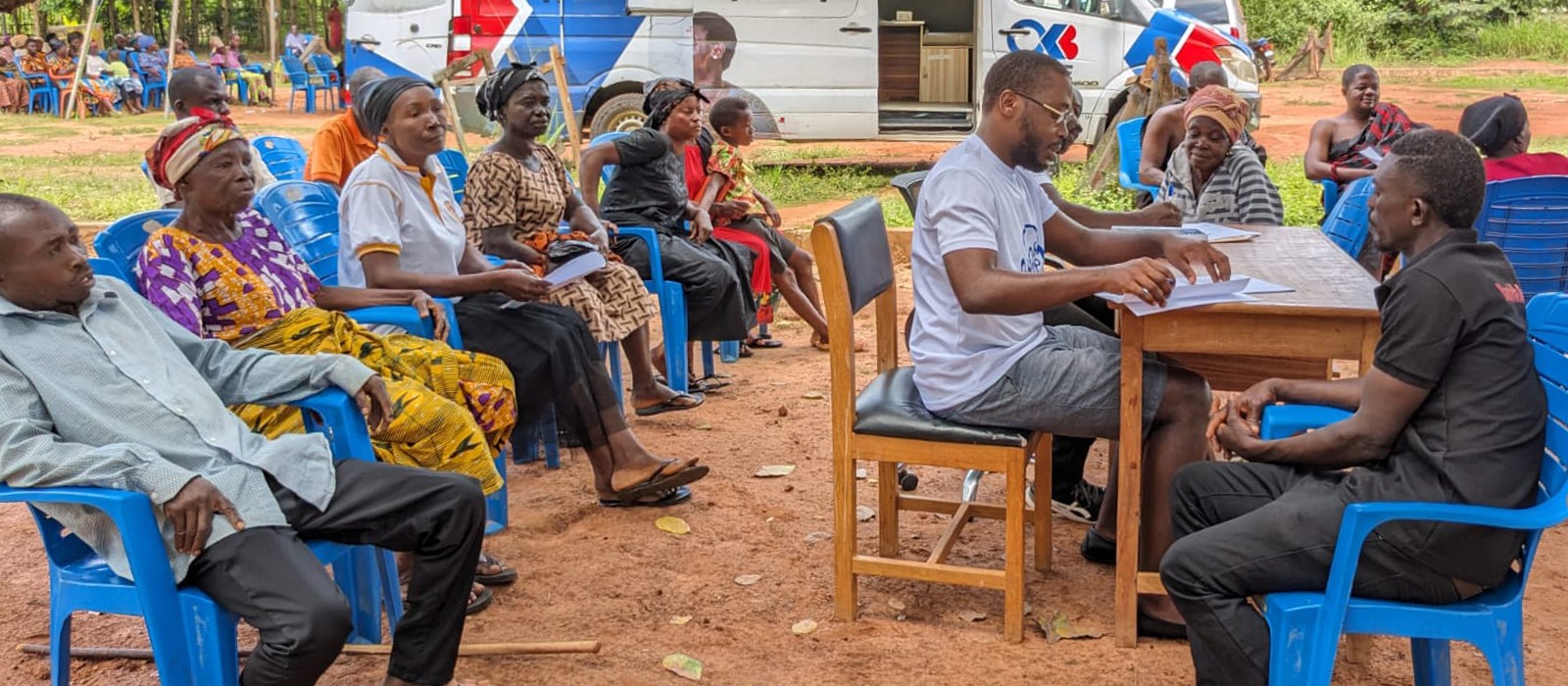Primary tabs
Alum brings health care to rural Ghana

When Osei Boateng ’18, MHA ’20 was 18, his beloved grandmother passed away in Ghana. What deepened his pain was his belief that her death was preventable. If she had learned sooner that she had high blood pressure, or gotten faster treatment when it spiked, she may not have suffered a stroke.
“It made a huge impact on my life,” Boateng said. “I decided to dedicate my life to making sure people don’t lose their loved ones because of lack of access to health care.”
Boateng’s grandmother wasn’t alone. Two years later, his aunt, who was diabetic, died after delays in seeing a doctor. When Boateng was growing up in a village in southern Ghana, it wasn’t uncommon for people to go to sleep and not wake up. During a course on anatomy and physiology at Cornell Human Ecology, Boateng learned a term that helped make sense of the insidious medical conditions affecting his community: “silent symptoms.”
The most common causes of death in Ghana include stroke, heart disease and diabetes, which can often be mitigated through early screening and intervention. But rural residents struggle to access preventative care. “People have to travel miles to the nearest health care center, and once you make it, there’s no guarantee you can see a doctor,” Boateng said.
Boateng, who immigrated to the U.S. just before enrolling at Cornell, originally planned to become a doctor, but he couldn’t wait to make an impact. In 2017, thanks to a Cornell Tradition Fellowship, he traveled to his native village to provide health education and early screening for hypertension and diabetes. One woman was initially reluctant to be tested but ended up having skyrocketing blood pressure. The team rushed her to the emergency room.
“The attending physician said that if we had delayed by a couple of hours, the woman would have lost her life,” Boateng said. “I saw that this really small action saved people’s lives. That’s when I started to double down.”
That year, Boateng founded the OKB Hope Foundation, largely using his own funds, and began taking several Cornell students with him each year to provide health education and outreach in rural communities across Ghana. Over time, he learned that distance wasn’t the only obstacle to people seeing a doctor: “Leaving their workplace means they’re losing money and can’t put food on the table.”
In 2021, Boateng raised funds to buy a van and retrofitted it with solar panels, an electronic medical records system and diagnostic equipment. Since 2022, the mobile health clinic — staffed by a nurse, physician’s assistant and others — has served more than 4,000 people across 50 rural areas in Ghana. “I wanted to create a one-stop-shop,” Boateng said.
His foundation has also trained 20 community members across four communities to complete blood pressure and glucose checks. “The van can only be in one place at a time, and if we wanted continuous and sustainable healthcare, people in the community had to be an extension of the work we do,” he said.

Boateng (seated at table) meets with patients in a rural community in Ghana.
In 2022, Boateng also launched an initiative to educate rural residents about mental health issues, which are widely stigmatized in Ghana, through a multilingual website. He is currently working with Hack4Impact Cornell, a student group, to build a telepsychiatry platform that can connect Ghanaians with mental health providers in real-time.
OKB Hope Foundation is also collaborating with Cornell’s Student Multidisciplinary Applied Research Teams (SMART) Program to conduct feasibility research on community-based health insurance in Ghana. And for the past two years, Boateng has brought together university students from across the world — including Cornell — for case competitions around global health challenges. Last month, more than 100 students worked in teams to brainstorm ways that technology can reduce maternal mortality.
Boateng, who earned a bachelor’s degree in human biology, health and society and a master of health administration degree, says Cornell Human Ecology set him up to make a difference at scale. “Even though healthcare administrators don’t directly interact with patients, the decisions they make affect thousands,” he said. “My goal was to be in a position to impact the lives of a lot of people in a positive way.”
Earlier this year, Boateng quit his job as a public health sciences manager at the Henry Ford Health System in Detroit to pursue his passion full time. He is currently completing a master of business creation degree at the University of Utah to build skills that will help him expand his foundation’s work to other countries. In the meantime, its funding still largely comes from his life savings and from a board member, fellow Cornell alum Sandy Khaund ’94, M.Eng. ’95.
Boateng believes the financial sacrifice is worth it. “It’s sort of cliché, but once you’ve identified your purpose and follow that, it really gives you a sense of fulfillment,” he said.
He encourages students and alums who want to make a difference to start small. “If you think big, it becomes crippling, so you don’t do it,” he said. “Once you start, the vision gets bigger and bigger.”